I never imagined after last summer ending that I would come back to Eastern Europe so quickly. I knew that after traveling and getting a glimpse of the world last summer, I’d want to travel again, but I never thought that going back to Poland would be my next destination. Spending my spring break in Vienna certainly influenced my choice to return to Poland this summer and I am so thrilled that I made the choice to come back.
Let me clear the air though – the places I saw in Poland last summer are not the same places that I am exploring over these next eight days. Last summer, I had the opportunity to travel to Poland for two days with the Helix Project and we visited the regions of Bialystock and Suvalki which line the northeastern tip of Poland near Belarus and Lithuania. On this trip that I am on now, we are exploring the central region of Poland, some stops including Warsaw (Poland’s capital city), Krakow, Lublin, and the Auschwitz Concentration Camp.
I have only been on this trip for two days and so far it has been so jam packed and busy that for the past two nights I’ve come back so tired I can hardly move, let alone. It seems that on a trip like this one has to choose two of the three things to do: sleeping, exploring, and blogging – so tonight I’m choosing blogging, let’s hope I can sleep on the bus tomorrow! (I know deep down the blog is worth it – I’m a writer and we have to make these choices!)
So I’m going to do my best to go in order from the start to finish of my first two and a half days in Poland. We have literally done so much in these past few days that if I were to write all of it down it would either drag on until you till you stopped reading (even thought the writing is definitely grade A!) or defeat me in the process because the writing would never end. That’s how much we’ve seen! I have so many thoughts swirling in my head right now that if I didn’t write it down I don’t know how I would be able to handle this trip.
Anyways, I’m going to start on this past Sunday, the day I travelled to Poland because that was when it hit me. This trip was real. I was going to Poland – the land of my people, the land of my ancestors.
When my Vienna group leader Sam told me that he was organizing another Hillel sponsored trip to Poland to learn about Jewish life and wanted me to go, at first I was hesitant. But then I realized how right he was – I needed to go on this trip. I owed it to my questions and I owed it to myself. Let me also say how thankful I am to the Woodrow Wilson Undergraduate research program for funding me to go on this ten day journey and explore my research question on how Jewish life has resurged in a post-Holocaust world. It means a lot to me that my university believes in my goals as much as I do and it’s always helpful to receive some support monetarily! I don’t know where I’d be without Johns Hopkins or my research mentorship at school. For all those who believed in me, I’m so appreciative for all your support as I go on this trip!
Our first dinner in Poland consisted with a meeting with Mr. Sebastian Rejak, a representative of the Polish Ministry of Foreign Affairs. We had a very nice meal with him and discussed with him how Poland has changed since the Second World War. We discussed how the Holocaust was educated to young Polish citizens and what it means to be Polish in today’s world. One major highlight of this dinner was my newly acquired understanding of how Polish life was affected by Soviet communism after the Second World War. It seems to me that the Holocaust and the Communist occupation by the Soviets served as back to back traumas for many Eastern European people. Only in the past few months have I started to understand the drastic changes in the Eastern Europe between when the Soviets had power and when they lost it in the nineties. When the Soviets ruled over Poland after the Holocaust, expressing individuality and religion was severely dissuaded against. It was said that if you wanted to actively be Jewish in Poland in post-Holocaust years, you had to leave because the Soviets demanded “sameness” – equality in the idea that everyone had to act the same. No one should stand out. Being Jewish, aka being different, was not welcomed and that went the same for all religions.
Only in the nineties when the Soviet regime fell did people start turning again to religion, especially Jews. It was in the nineties when many middle aged people found out from their parents that they were actually Jewish and they just weren't told to be protected. It was in the nineties when dialogue began to occur about Poland’s not so perfect past, when questions about the Holocaust and Polish responsibility came up. The fall of the Berlin wall, and the fall of Soviet Communism changed everything – it was almost as if Polish society was reborn.
Now, today a big issue in Poland is how their population will be educated about the second world war. How is the genocide going to be talked about and taught? Is Poland merely just a mass grave or can it grow to be something more - can we learn something? I agreed with Rejak in his views that we need to educate young Poles about the Jewish presence in Poland and how it was systematically destroyed by the Nazis through genocide. Unfortunately, there aren’t enough Jews left in Poland to teach this history – that’s why we need teachers and mandated school curriculums to help reinforce this lesson. We need to teach young Poles about the perpetrators that worked in their country, but we also need to educate them about the heroes – about the righteous who saved Jews. To me, Holocaust education is about finding a balance, and it is particularly tricky in locations like Eastern Europe where the students’ grandparents might have indeed been perpetrators or those who stood by while the Nazis demolished the Jewish population.
In trying to see through their eyes, I would never want a young Polish boy or girl to feel guilty about something their grandparent did or did not do. It is not this generation’s fault. However, I believe it is important that these lessons are learned and discussed to prevent further atrocities from happening. I believe this principal is true for any country or citizen population. Genocide education is important because as Confucius said, “Study the past if you would define the future.” History can always repeat itself. Holocaust education shouldn’t be focused on promoting guilt; rather it should be for the purpose of education and improving the welfare of society.
On Tuesday morning, our group stood together at the top of the Polish Palace of Culture, a thirty story building that gave us a bird’s eyes view of the whole city. The view from the top floor was incredible and as I looked out at the city it was impossible to imagine how less than a century ago, nearly the entire city was destroyed by war. Literally when looking at pictures of post-Holocaust Warsaw to what it is today the difference is incredible. The first picture has almost no buildings; the second picture has a ton of them!
After this visit to the tower, our group toured what was the former Warsaw ghetto and Jewish neighborhood. We learned a bit about its vibrant Jewish life – over one third of Warsaw was Jewish – and its struggle to maintain itself when the war began. Warsaw was the only city in Eastern Europe which housed a violent Jewish uprising against the Nazis, famously called the Warsaw Ghetto Uprising. It occurred between April 19, 1943 and May 16, 1943 and was a final act of Jewish resistance against the Nazis who had planned to deport the remaining members of the ghetto to the Treblinka extermination camp. We visited the monuments to the Warsaw Ghetto Uprising and the victims of the Holocaust. I was particularly touched when I was asked to read a poem by Polish/Jewish poet Władysław Szlengel, called “Window to the Other Side” – a powerful narration of what it was like for Jews living in the Warsaw ghetto to watch life be lived on the other side of the ghetto wall. It was heartbreaking as it was eye opening.
My window faces the other
side, shameless and brash Jewish window,
below, Krasinski Park’s beauty,
where autumn’s dead leaves still linger…
Through all of this grey-lilac evening
the branches bow their grave greeting,
and Aryan trees from the garden
are in my Jewish window peeking…
For me it’s forbidden to look through
(this by-law has obvious rightness),
these Israelite moles… this vermin…
quite properly should be sightless,
should sit in their holes and squalor,
for work keep their eyes and fingers,
their eyes never, never straying
outside their Jewish windows…
But I rush, when night has fallen,
so all can be smoothed, forgotten,
in darkness I rush to this window,
and stare… and stare like a glutton.
and greedily steal quenched Warsaw,
the hum and the distant whistle,
the outline of streets and buildings,
the crippled towers’ stumps bristling…
I steal the City Hall’s outline,
lies at my feet the Grand Theater,
(the lunar camp guard permitting
some sentimental night barter…)
My eyes are greedily piercing
these shadows (like knives well-sharpened),
this silent evening in Warsaw,
this city of mine all darkened…
And when I have hoarded much for
tomorrow, and longer even,
farewell I the silent city,
and raise magic hands to heaven…
I close my eyes and whisper
to Warsaw: Speak now… I am hoping…
All the pianos in town at that moment,
all the pianos their silent lids open…
their lids at my bidding fly open,
raised up with sadness and weakness,
and floats from a hundred pianos
Chopin’s Polonaise in the blackness…
The keyboards call me, with pity
and anguish of silence swollen,
from death-white piano keys calling…
The end now… and I drop my hands,
the polonaise shrinks back inside
its boxes. It’s not good to have
a window to this other side.
It is easy to feel overcome by sadness and mourning when visiting a city like Warsaw which is still just recovering from the tragedy of WWII. It is easy to feel a sense of helplessness and pain to walk through streets which were once housed by so many of your own people. It is easy to feel alone. You wonder how can people move on and still live life here? But while these may be concerns – they are not rooted from the truth as far as I've come by it.
The truth is something that I have to keep reminding myself. The truth is something that has charged me and will keep me charged for the rest of this extremely emotional trip. The truth is that people DO care. The Holocaust is remembered. And as Jewish people and as Non-Jewish people – as people in general – we need to continue to have hope. Hope is the key. We need to learn, we need to educate, and we need to have faith that future generations will learn from the mistakes of our past. Hope is my fuel as my faith is my comfort. I know that the Jewish people are still alive. The Jewish people are here and we will continue to make sure the past is remembered. Life goes on, but the past is never forgotten. For my own sake, I need to have hope in this idea.
In coming back to Poland, you can see, I still have many questions. I want to learn more about my family’s history. I want to challenge and build on my beliefs and gain knowledge that will make me wiser and more rounded. I want to see through as many people’s eyes as possible and I want to understand what it truly means to be Jewish today and how I must live my life to preserve the memory of my people’s precious history. There’s still a lot to be figured out but I have hope that this will all see itself through.
As I learned by visiting the Warsaw Uprising museum today, a museum that documents the city of Warsaw’s four month long defense against the Germans from August 1, 1944 to October 2, 1944, I saw today that everyone is a victim of history. Everyone living in Poland during WWII was a victim of loss, death, and collapse. Nearly the entire city of Warsaw was destroyed by the Nazis. Over 200,000 Poles died in the fight for Warsaw. Of the 5,000 Polish people that tried to escape through the sewers by 1944, only 800 could make their way to safety.
I myself climbed into a make-shift sewer exhibit today and felt a sense of claustrophobia that is indescribable. For the first time I could feel the fear that any person would feel, trying to escape their home in the darkness, wondering if they’d ever see the light of day again. This sensation made me realize Jews were victims of World War II but so were Poles, who fought for their city both against the Nazis and the Soviets. Although they eventually lost to the Nazis in battle, those who died in the Warsaw city uprising fought for freedom and fought for their community, something that both Polish Jews and Polish non-Jews had in common. Poland was a city of two uprsisings - the uprising of the Jews in the ghetto in 1943 and the Poles in Warsaw in 1944. I learned that seeing through another’s eyes is the key to understanding, or even beginning to understand, three of the largest lessons of the second world war: tolerance, resistance, and resilience.
I came back to Poland to learn more about its Jewish story, but I think it helps to learn its history in the wider scope. It’s about seeing through another person’s eyes. It’s about seeing a story from all angles and feeling empathy towards all. The words of Helise and the “Phoenix city” still stick out in my mind. Warsaw is truly a great city because of its ability to rebuild itself, even out of the ashes. I hope that one day Jews can come back to Warsaw and feel less pain, although the horrid memory of the past will always be there. I hope that one day we can feel more admiration for a city that even in just 25 years of recovery from Communism and Nazism, is still trying to face its past and re-erect for a better and more hopeful day.
As always, thanks so much for reading. Next time I’ll be writing about my day in the towns of Kazimierz and Lublin, two incredible places to visit. Once again, it feels great to be back in the blogosphere and its readers like you who make it worthwhile. Thanks so much.
Until next time,
Arielle
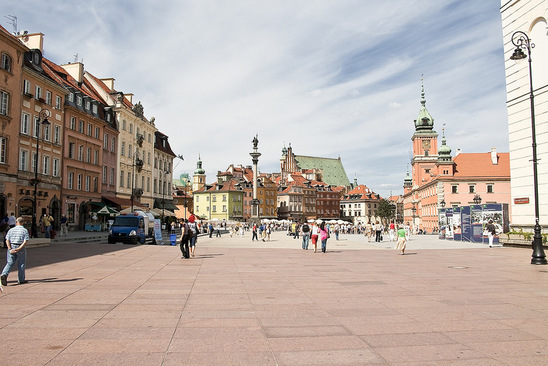
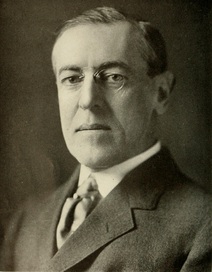
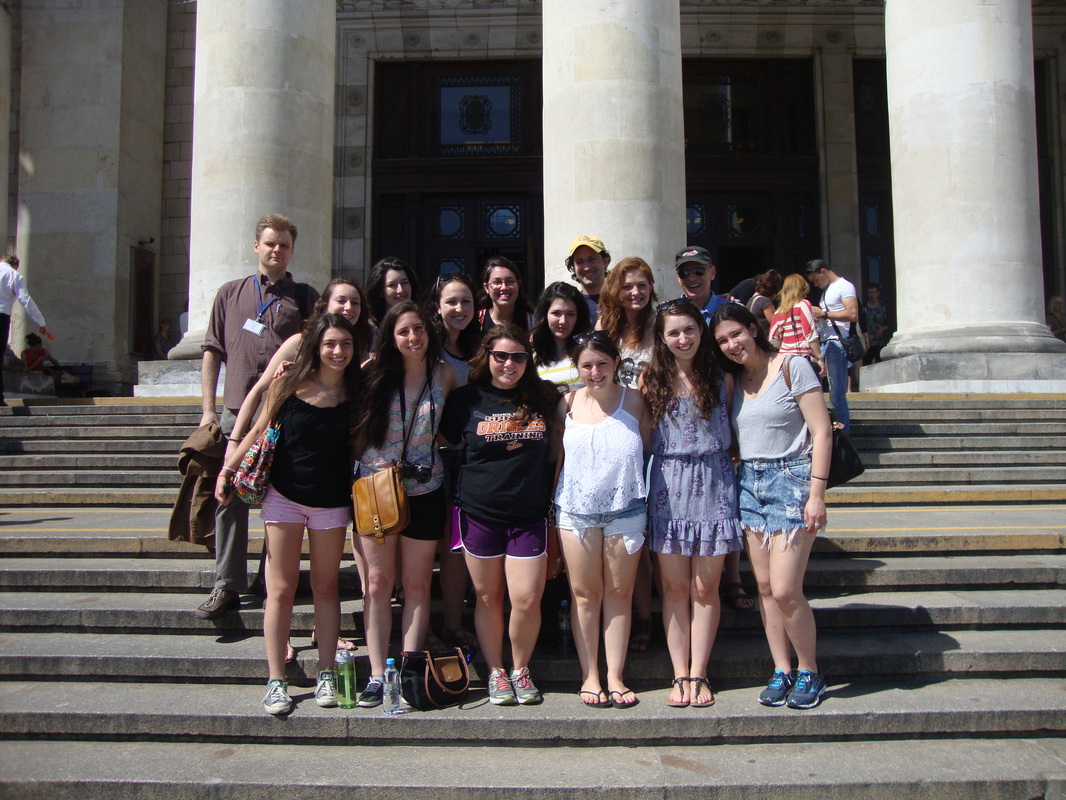
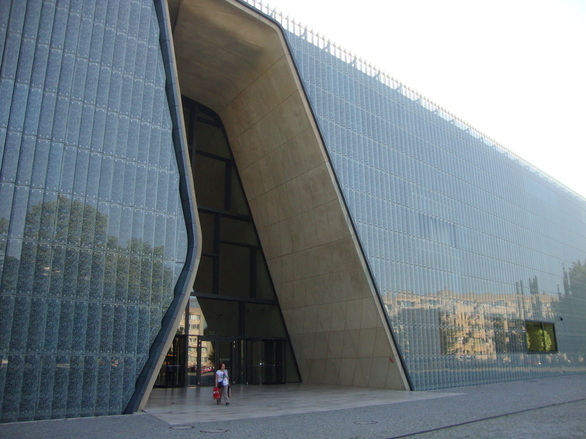
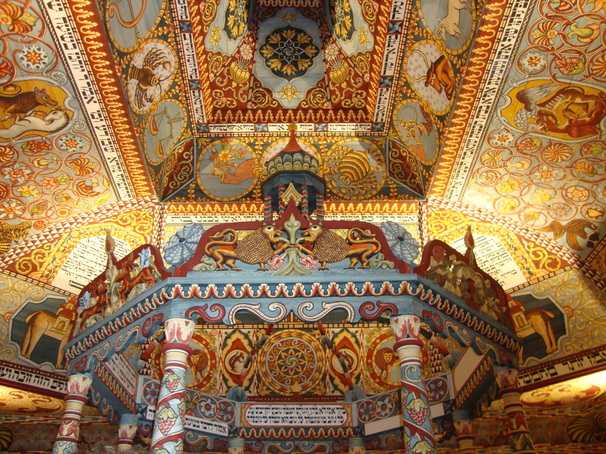
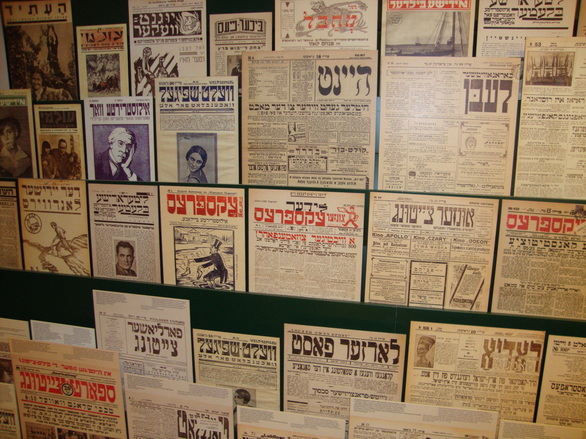
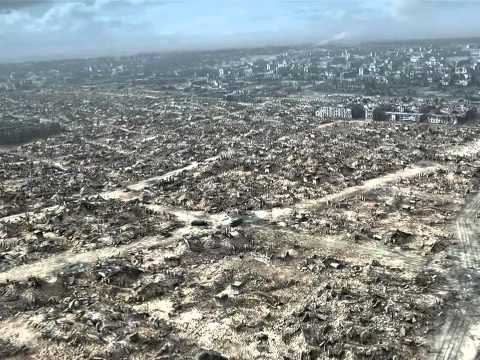
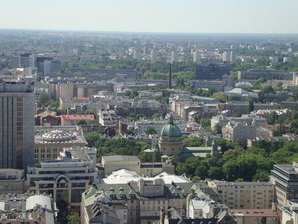
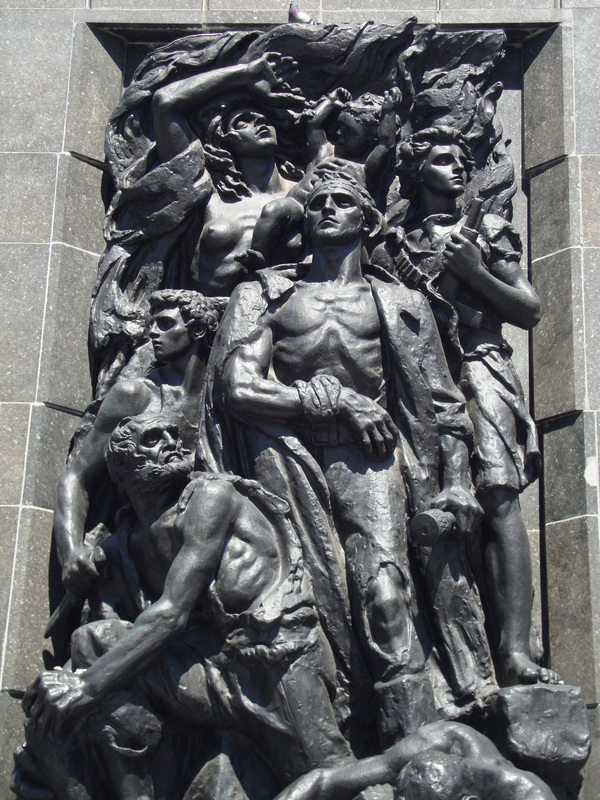
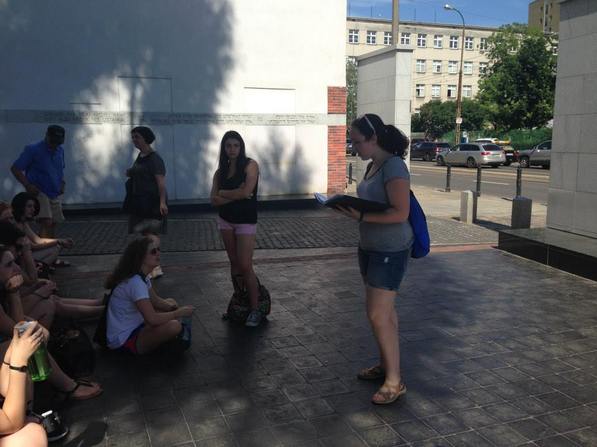
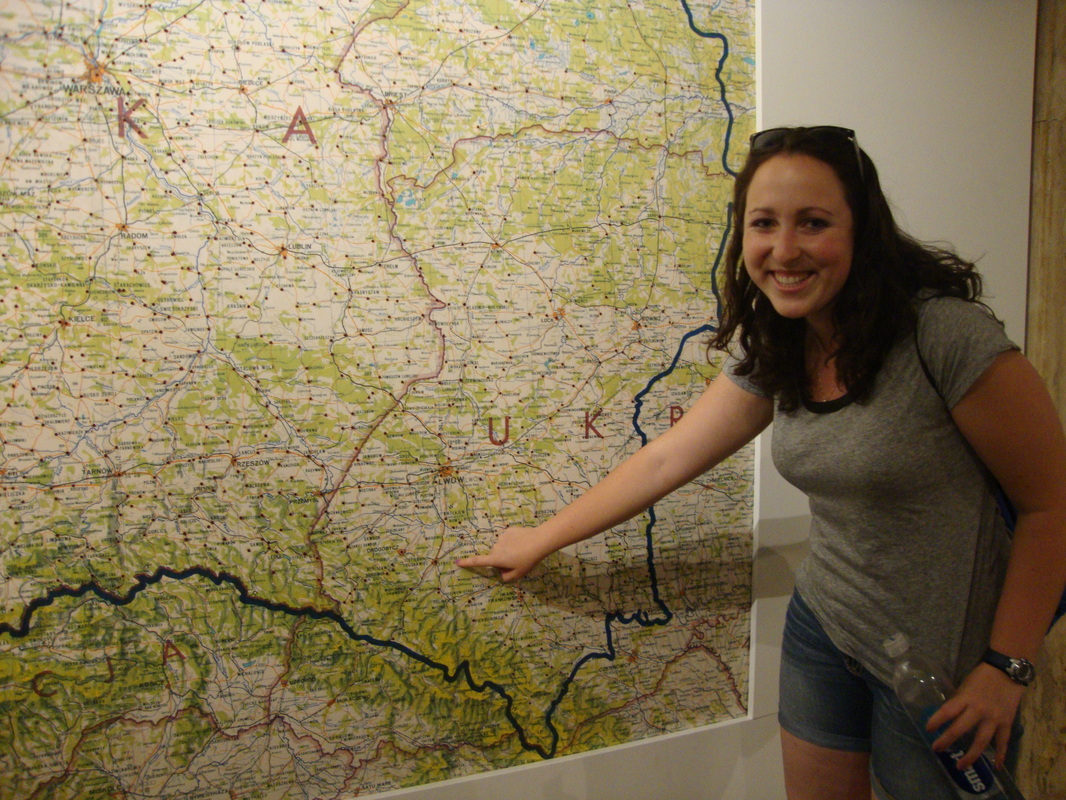
 RSS Feed
RSS Feed
